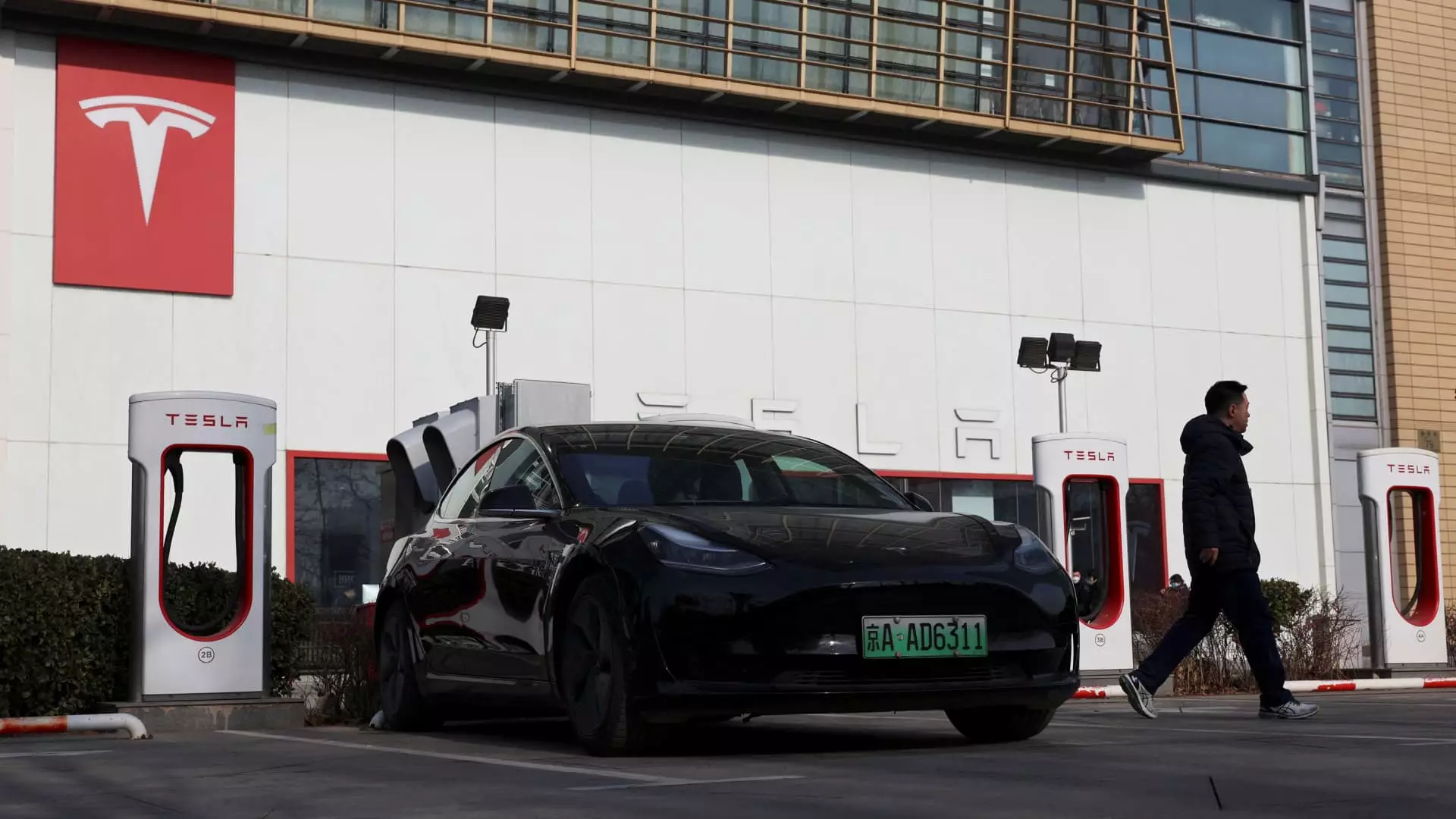As the global automotive landscape continues to shift towards electric vehicles (EVs), China’s automotive market stands at a critical juncture. In 2024, foreign automakers faced increasing challenges and competition, laying the groundwork for a notable transformation. By 2025, analysts predict a consolidation of power among leading domestic electric vehicle manufacturers, particularly the likes of BYD. This transition signifies a pivotal change not only in consumer preferences but also in the strategies and operations of both traditional and new automotive players operating in China.
BYD’s Market Dominance
Currently, BYD is positioning itself as an unrivaled leader in China’s auto sector, claiming approximately 16% of the market share by October 2024. This figure represents a remarkable increase from 12% in 2023, signaling a robust trajectory for the company in a highly competitive environment. Analysts from Nomura regard BYD as a prime investment opportunity, assigning a “buy” rating with a target price that anticipates steady growth. Notably, BYD surpassed Tesla in quarterly revenue for the first time, highlighting its substantial production capability — a performance that has been sustained for two consecutive years.
Despite Tesla’s reputation and higher price point for battery-only cars, BYD’s diverse offerings, which include hybrid models, resonate well with a broader consumer base in China. The contrast in sales growth is stark; while BYD experienced a surge of 67%, Tesla’s sales fell by 4.3% in November. This trend suggests that BYD’s strategy of catering to a wide market range may be more aligned with current consumer demand in China, where affordability plays a significant role.
Following BYD, Geely stands as the second-largest player in the market but trails significantly with just 8% of the share. Despite this gap, Geely is not idle. Analysts predict that the company is on track to achieve ambitious sales goals, potentially exceeding 2 million units for the year, with an emphasis on new energy vehicles (NEVs). As Geely continues to push for EV penetration, an expected growth in sales to 2.6 million units next year reinforces its strategic focus on innovation and expanding product lines, including the promotion of its brand Zeekr.
Geely’s acquisition of established brands such as Volvo has provided it with an arsenal of expertise and technology. This diversification not only enhances its product offerings but also provides a pathway to penetrating markets outside of China, as the global demand for electric vehicles continues to rise.
The challenges faced by traditional automakers in China are becoming increasingly pronounced. As the market rapidly adapts to new technologies, companies like General Motors are restructuring with significant cost implications, hinting at the difficulties experienced in maintaining relevance in a transforming industry. With joint ventures undergoing major changes and certain plants poised for closure, traditional brands are forced to reevaluate their approaches to align with the battery-focused future of automobiles.
In contrast, domestic competitors are leveraging their geographical and market insights to forge ahead, effectively undermining the market presence of legacy brands. With companies like SAIC GM Wuling only capturing a minuscule portion of the market, the decline of foreign influence in the EV sector appears inevitable.
While leading brands like BYD and Geely dominate the landscape, a smattering of electric vehicle startups is beginning to capture consumer interest as well. For instance, Yongda has emerged as a key player, representing several new energy brands while partnering with tech giants like Huawei, which are venturing into automotive territory. The potential for Huawei’s vehicle systems to achieve exponential sales growth underscores how traditional tech firms are diversifying their portfolios in tandem with shifting consumer preferences.
Citi’s emphasis on startups like Leapmotor highlights a new wave of innovation driven by efficient spending and research capabilities, further showing that the traditional barriers to entry are steadily eroding. Divergent investment strategies also reveal an adaptive approach among newer entrants, with a strong focus on cost-effectiveness encouraging sustainable growth in a crowded market.
As the Chinese automotive market propels into 2025, the convergence of traditional practices and new methodologies heralds a transformative era. BYD’s commanding presence and Geely’s focused growth strategies illustrate how domestic manufacturers are poised to take the lead in a market previously dominated by foreign players. Industry-wide shifts, compounded by the rise of tech-driven innovations and startups, indicate that the landscape is evolving at an unprecedented pace.
This evolution calls for adaptive strategies from all players, as they navigate the complexities of an industry undergoing rapid change. Ultimately, a future defined by electric vehicles appears not just probable but inevitable, presenting a vast array of opportunities for both established leaders and emerging innovators in China’s dynamic automotive sector.

